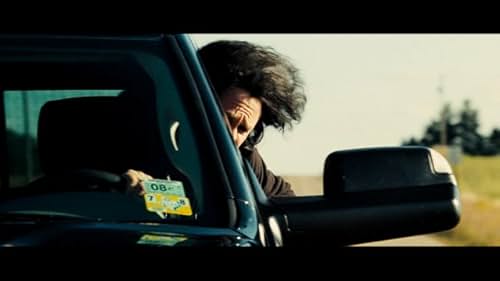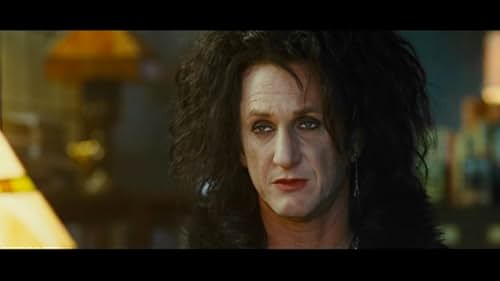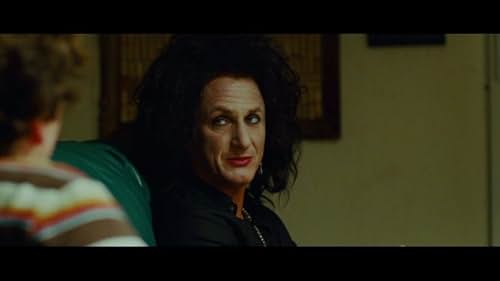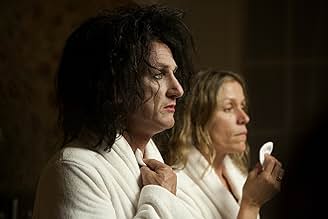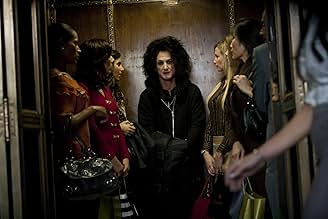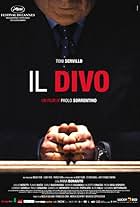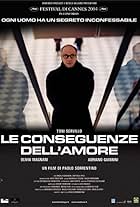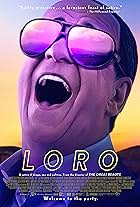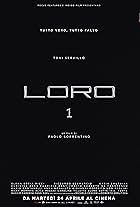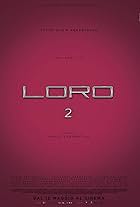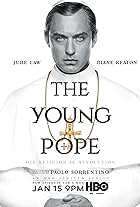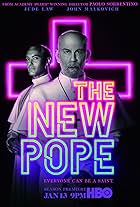Cheyenne, a retired rock star living off his royalties in Dublin, returns to New York City to find the man responsible for a humiliation suffered by his recently deceased father during W.W.I... Read allCheyenne, a retired rock star living off his royalties in Dublin, returns to New York City to find the man responsible for a humiliation suffered by his recently deceased father during W.W.II.Cheyenne, a retired rock star living off his royalties in Dublin, returns to New York City to find the man responsible for a humiliation suffered by his recently deceased father during W.W.II.
- Awards
- 19 wins & 17 nominations
- Elevator Woman #4
- (as Sara Kamoo)
Storyline
Did you know
- TriviaThe organ-like instrument that David Byrne plays for Cheyenne is a variation of Byrne's "house organ." Byrne created the organ in 2008 as part of an art installation project in New York City. Instead of playing musical notes, each key on the organ transmits a signal through a wire, which in turn "plays" the building: for example, motors vibrating a set of metal girders, hoses blowing air through the building's water pipes, or metal rods striking the radiator.
- GoofsCheyenne refers to the band as "The Talking Heads". David Byrne and group went so far as to name an album "The Name of This Band is Talking Heads" to help people drop the "the".
- Quotes
Rachel: No shit! Now I remember you. You sang with Mick Jagger once.
Cheyenne: I know him. He's a good singer, I like the way he dances.
Rachel: Listen your cheeseburger is a bit too well done. You don't mind do ya? Unfortunately, that's life!
Cheyenne: You know what the problem is... Rachel?
Rachel: What?
Cheyenne: Without realizing it, we go from an age where we say: "My life will be that" to an age where we say: "That's life."
- Alternate versionsThe international version is approximately 7-minute shorter than the version screened at the Cannes Film Festival and released in Italy.
- ConnectionsFeatured in WatchMojo: Top 10 Sean Penn Performances (2013)
- SoundtracksThis Must Be The Place (Naive Melody)
Written by David Byrne (as D. Byrne), Tina Weymouth (as T. Weymouth), Jerry Harrison (as J. Harrison), Chris Frantz (as C. Franz)
Performed by David Byrne
(c) Warner Bros. Music Inc. / Index Music Inc.
Licensed by Warner Bros. Music Italy S.r.l.
I've noticed that most small films tend to focus on depressed or outsider type people. I'm guessing that's because the people who make them are that way. But it would be nice once in a while to see a small film about essentially happy people growing in some way, or overcoming an obstacle.
If you took a bunch of drugs, you haven't worked in 20 years, you live in a dreary place, and you're going through a midlife crisis, you would move and talk slowly and perhaps softly. Also, if you were a cross dresser, you might speak with an effeminate voice. So i get all that. But the mumbling aspect was a bit much. Unless you want to interpret that a guy who made millions from his voice, is now crippled in the voice. The mumbling was my biggest complaint. Even if he had cranked it up a tiny notch, I would have been satisfied.
I think the sex scene was put in there specifically to justify why a woman would stay with such a loser for so long. Make no mistake about it. This guy is a loser. His awareness of that fact is the main source of his depression.
What I liked about the plot was the idea of needing a purpose or mission to get yourself out of a funk or grow up. But having his dad be American and orthodox Jewish is a shock to the system. There were no previous references to his even being American, and none about growing up as an orthodox Jew. Wouldn't you see some vestiges of Jewishness at his house, or in his mannerisms or conversation?
As other reviewers mentioned, it was clear that he had no real interest in the Holocaust or his dad's history. He just felt remorse at not giving his father a chance. Couple that with needing a purpose and you have his mission.
Most of the people he interacted with in small town America were not random. They were family members of the Nazi he was hunting or knew something about him. But we did get a little slice of American life in the process. Although here's a tip to non-American indie film enthusiasts. Not all Americans are quirky. Many just work, live, love, pray, volunteer, serve, and laugh.
This guy was always about depression and regrets, but never about rage. So it's no surprise that he had no rage for the Nazi. Another person might have, because although the humiliation he caused his father was relatively mild, he was still involved with slaughter.
I'm OK with the subplots about the woman with a missing son and the Gothic teen. It makes sense. The girl was the type he would have hung out with in his own teens and he was basically stuck at that stage of life. Meanwhile the woman's son apparently skipped town the way our main character had years ago.
I love the Talking Heads song. So I certainly appreciate the idea of building a story around it. "Home, this must be the place." You could say that our protagonist was searching for a home in this world his whole life.
- How long is This Must Be the Place?Powered by Alexa
Details
- Release date
- Countries of origin
- Official site
- Languages
- Also known as
- Este debe ser el lugar
- Filming locations
- Production companies
- See more company credits at IMDbPro
Box office
- Budget
- €25,000,000 (estimated)
- Gross US & Canada
- $143,979
- Opening weekend US & Canada
- $7,754
- Nov 4, 2012
- Gross worldwide
- $11,928,909
- Runtime1 hour 58 minutes
- Color
- Sound mix
- Aspect ratio
- 2.35 : 1
Contribute to this page


